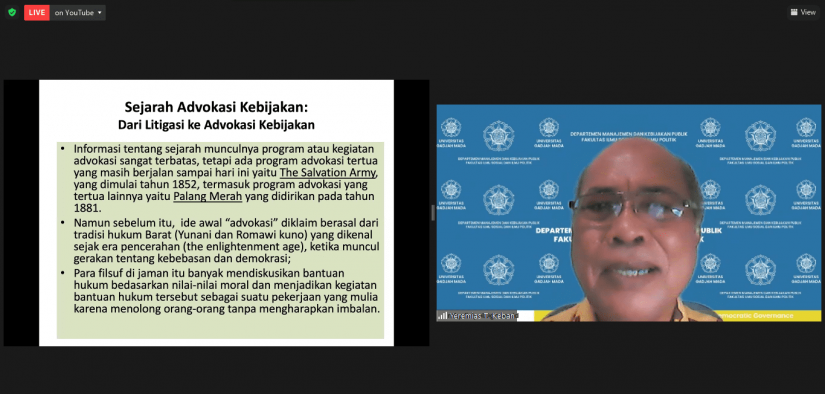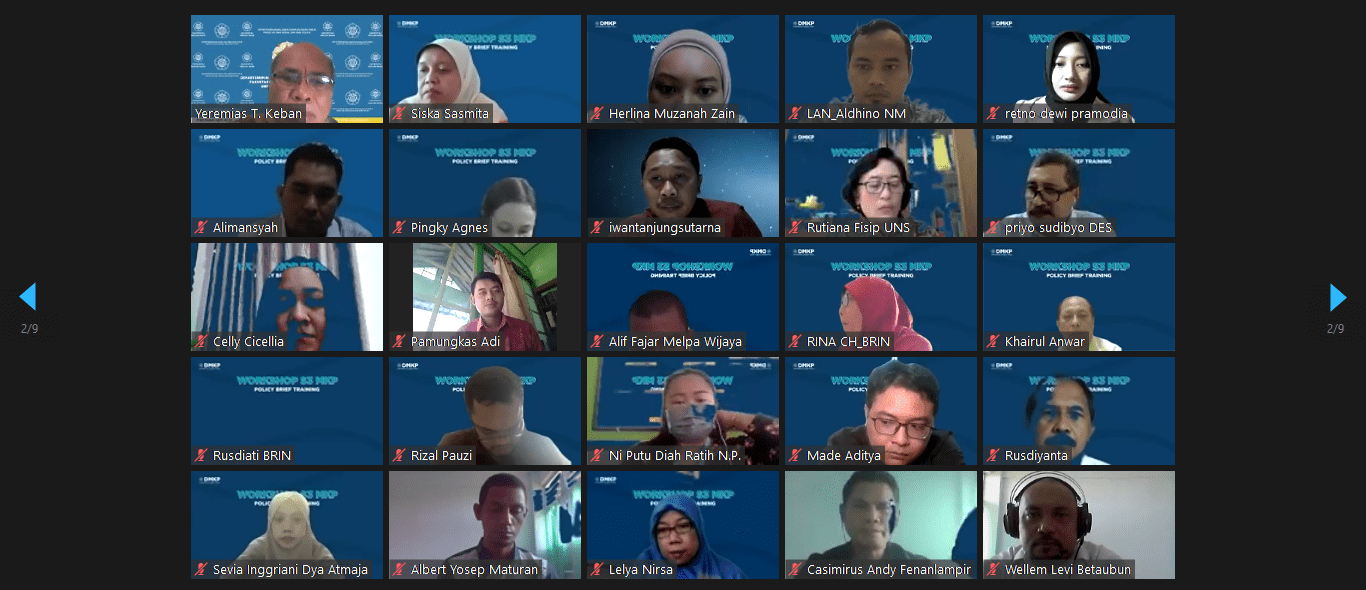
Yogyakarta, October 16th 2021─The Department of Public Policy Management (DMKP) Fisipol UGM held a policy brief training workshop with the title of “Mainstreaming policy brief as a policy-advocacy instrument in developing a culture of research-based social movement”. The event was divided into two sessions in which the first session was filled by Prof Yeremias T Keban with material about the history of policy advocacy and policy brief, policy advocacy theories and important positions of policy brief in policy advocacy, as well as the theory of policy brief creation. Next, the second session was filled by Aldino Niki Mancer, S.I.P as the representative of State Administration Bureau who gave a talk about mainstreaming policy brief and how to use it in policy advocacy in the perspective of bureaucracy and government, as well as the role of policy analyst in policy brief construction as well as advocation. On this occasion, the event was started with a welcoming remark by the Head of the Doctorate Department of MKP Fisipol UGM. The Head of the Doctorate program said that the event started off from a simple idea. This event is a way to give back to the community and was designed to resemble a practical-technocratic training on how to create a policy brief.
Then the remark was followed by an opening remark from the moderator. Pamungkas talked about the urgency of the topic of the workshop based on Indonesia’s historical success factor on post-monetary crisis recovery. Based on that history, there are several big challenges when it comes to budget scarcity in constructing a policy. Therefore, a research based policy advocacy needs to be nurtured, especially in terms of policy brief creation.

During the sharing session, the first speaker talked about the history of advocacy, especially in terms of the shift from litigation aspect to non-litigation aspect. In this regard, the paradigm is widening. Advocacy can now be used as a mechanism to stand up for marginalized or vulnerable groups. In line with the first material, the second speaker talked about how a policy brief can be an alternative in highlighting a certain issue during the process of policy advocacy. The analysis process can run through two paradigms which are the political and technocratic paradigm. Even so, the alternative process that champions knowledge, evidence, and research as the basis can create a better output, so it needs to be paid attention to in the creation of a policy brief.
